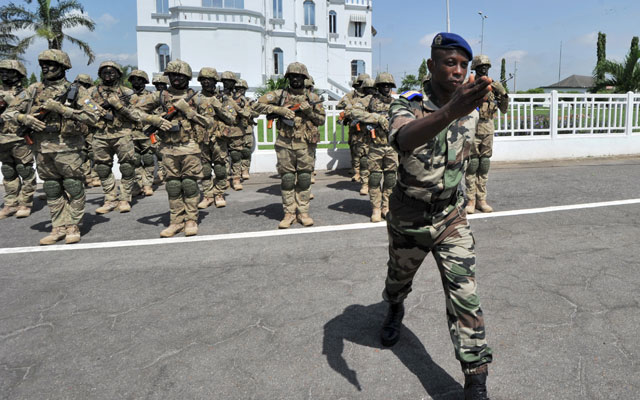U.N. Peacekeeping Mission in Mali Poised for Failure
Nicole Leibow /
The U.N. Security Council has unanimously approved a United Nations peacekeeping force to Mali, the Multidimensional Integrated Stabilization Mission in Mali (MINUSMA). The U.N. has previously avoided such peacekeeping missions, and with good reason.
Some of the U.N.’s darkest hours were the result of peacekeeping missions sent in the absence of a cease-fire or peace agreement. Peacekeepers failed to stop the Rwanda genocide and the Bosnia massacre of 1995.
U.N. peace enforcement has since been reevaluated by the Report of the Panel on United Nations Peace Operations (Brahimi report). It specifies the separation between the function of the U.N. and that of “willing States”:
[T]he United Nations does not wage war. Where enforcement action is required, it has consistently been entrusted to coalitions of willing States, with the authorization of the Security Council, acting under Chapter VII of the Charter.
Peacekeeping missions serve a specific, albeit important, purpose. They are useful if they don’t overstep their intended roles, and when they are engaged for the right reasons. For example, under ideal circumstances (meaning in response to say, a cease-fire), this is what MINUSMA would do as a peacekeeping force. Composed of 11,200 military personnel and 1,440 international police, MINUSMA’s role is not to take military action against insurgents. Rather, its purpose is to restore the rule of law, promote democracy, and stabilize the northern population.
As defined by U.N. Resolution 2098, peace enforcement missions allow the use of lethal force in combat situations; peacekeeping operations, however, are guided by three basic principles:
- “Consent of the parties;
- “Impartiality;
- “Non-use of force except in self-defence and defence of the mandate.”
In reality, MINUSMA has reentered a gray area reminiscent of the 1990s. The U.N.’s way of getting around this has been to create an intervention brigade on “an exceptional basis and without creating a precedent or any prejudice to the agreed principles of peacekeeping.” And while French troops have made a significant dent in countering terrorism, Malians are still threatened by extremists, who have resorted to more insidious guerrilla tactics, including suicide bombings and other improvised explosive devices in civilian areas.
The United States should not be influenced by the U.N., and, having learned from past mistakes, remain wary of the U.N.’s course of action until conditions in Mali improve.
As Heritage fellow Brett Schaefer points out, in Mali, there is no peace to keep. Recognizing the current violence, the U.N. resolution permits the use of “all necessary means” to ensure “key population centres and support for the reestablishment of State authority throughout the country” and to protect “civilians and United Nations personnel.”
Terrorism will never be eradicated. But for peace to be kept, it must first be established.
Nicole Leibow is currently a member of the Young Leaders Program at The Heritage Foundation. For more information on interning at Heritage, please click here.

